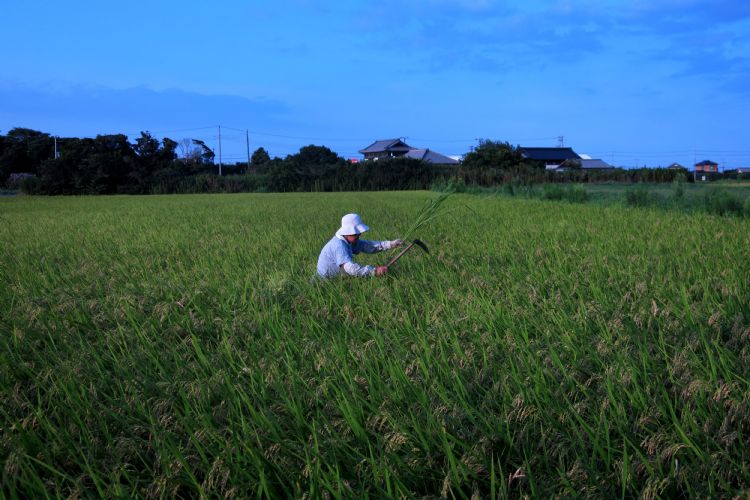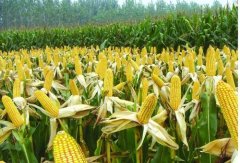The latest news on intelligent agriculture: MI adds wings to intelligent agriculture, and Japan uses artificial intelligence to cultivate new species.
Whether it is to increase production, to plant in places that could not be planted in the past, or to improve the taste and value of rice, farmers' associations all over Japan are actively developing new rice varieties, and even through DNA analysis technology, the cultivation of new rice seeds which used to be 10-15 years old has been shortened to 3-5 years. Now the Japanese government and agricultural start-ups even plan to introduce new technologies and apply artificial intelligence (AI) and intelligent agriculture to develop new drugs and materials to carry out new rice seed research.
Using DNA data to study crops and breeding is very similar to material drug research, that is, the effect of some DNA on crops has been understood, but there are still many ambiguities as a whole, so we can only use the method of trial and error to test and observe the results.
Moreover, crops are more troublesome than material medicines, that is, it is difficult to shorten the planting time. Some kinds of rice can be harvested in the tropics in three times a year, that is, in three or four months, but some kinds of rice can only be harvested twice a year. Therefore, a maximum of two or three experiments can be carried out a year, and materials and drugs can be tested more than that in a month.
According to a report in Nikkei Business magazine, Akita Prefecture in Japan replaced the new rice that was put on the market in 1984 and is expected to be on the market in 2022. It will take 38 years to develop a new rice that can be commercially listed. These 38 years are not empty. In fact, local farmers' associations and research institutions conduct research on 100 new varieties every year. Through nearly 4000 new varieties, the new rice which is commercially tasty enough to replace the old rice is found, which shows the difficulty of research and development.
And because the research and development of new crops is very time-consuming, genetic modification was popular in the 1980s and 1990s. by directly transferring the genes of other crops into existing crops, more than 100 new varieties can be produced each year. However, as we do not know what kind of sequelae genetic modification will produce, crops that are required to carry out genetic modification in the world must be marked as genetically modified crops, and imports will even be banned in some places, affecting the market of genetic modification technology.
In order to allay doubts about GM crops and pave the way for further genetic research, Japanese chemical giant Sumitomo Chemical (Sumitomo Chemical) proposed a technology called DNA marker (DNA Marker) in 2014, which takes samples to analyze DNA as soon as naturally pollinated new crops sprout, sets up a database to compare with planting results, confirms what characteristics those DNA will have, gradually master the tricks of improving rice seeds, and shortens the time for research and development.
And the establishment of the database marked by DNA, is undoubtedly suitable for materials technology (MI) application of artificial intelligence learning, and further accelerate research and development, so not only Sumitomo Chemical this kind of big companies care about, Aichi Prefecture, Japan's start-up enterprises, rice production technology research institute, and the Japanese government's agri-food industry technology comprehensive research institutions, are considering from rice DNA marking to artificial intelligence application research.
Although materials technology has just begun to be popularized in Japan, it soon attracted the attention of agriculture. Compared with materials and medicines commonly used all over the world, rice farming, a food crop biased towards a specific culture, is very suitable as a backward manufacturer of artificial intelligence and materials technology to establish a niche market. Taiwan, which is also a rice-growing country, deserves attention.

- Prev

The latest situation of US corn prices: spot prices of US corn have risen sharply due to planting delays
Corn, a crop, is very important for many industries now. it has many uses. it can be used as feed, industrial processing, corn starch and corn sugar. In terms of price, it is also relatively close to the people, but recently it has been reported that the United States
- Next

The price of fruit has risen seriously. why is the price of fruit rising? what is the futures price of apple and red jujube?
Have you found that the price of fruit this year is higher than that of previous years, especially the current price of red jujube? why? Since mid-May 2019, the price of fruit has generally risen in both the investment market and the retail market.
Related
- A one-day flower show brings 130 million yuan in orders! Nanhai, this Phalaenopsis exhibition is amazing
- What do the flower language and meaning of Lutheran tree mean? Precautions for planting Lutheran tree
- Encounter Chaoshan Kongfu tea, not without this cup of Phoenix single clump
- The durian market in Vietnam and Thailand is flooded. The price of imported durian has plummeted by 30-40% in a month.
- Shanghai solved the problem of local vegetable supply by planting 80,000 mu of green leafy vegetables.
- Wageningen University has become the best agricultural university in the world for the seventh time in a row.
- The strongest export season of South African grapes is full of challenges, with exports to Russia falling sharply by 21%.
- Sri Lanka is on the verge of bankruptcy, "Tea for debt" Organic Agriculture Revolution aggravates the Food crisis?
- Turning waste into earthworm manure and worm manure into organic fertilizer-A new choice for auxiliary farming
- Organic rice growers shoulder the responsibility of nurturing agricultural talents! Yinchuan Sustainable Farm with Organic Life Camp

